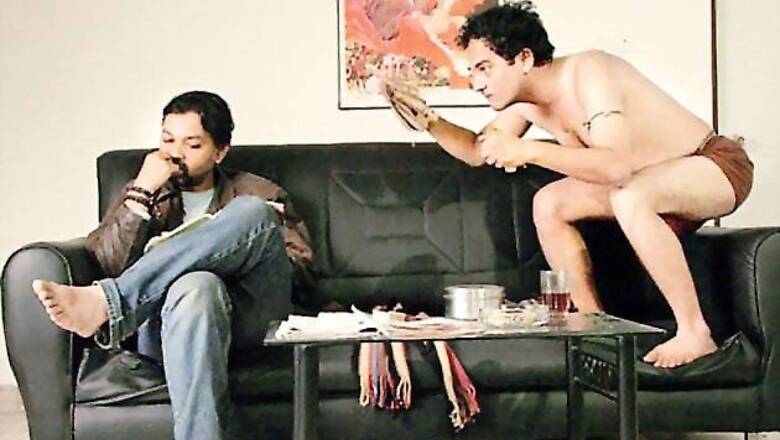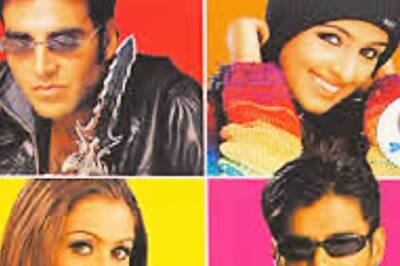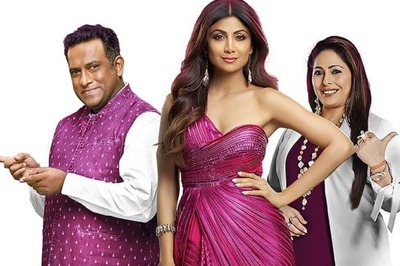
views
Cast: Ritwik Chakraborty, Raima Sen, Churni Ganguly, Victor Banerjee, Srijit Mukherji
Director: Kaushik Ganguly
In almost every film industry, there is a dearth and need of films that speak up about the relevant issues. It's a general perception throughout the world that films are only meant for entertainment. However, to our surprise, every now and then, filmmakers come up with ventures that entertains as well as satisfies the audience's need to watch something new and fruitful. Mostly, these are called as alternate or parallel films, and their primary structure is basically meant to provide the director's take on certain issues rather than engaging the viewer.
The line between parallel cinema and alternate cinema is quite broad. A vast group of spectators are receptive of alternate cinema, but they are willing to spend time and money on parallel films, which usually fail to entertain.
The Bengali film industry is also affected by what's happening in the entire world, but it is still not known for frivolous projects. Thanks to some stubborn cultural ideas, the common film enthusiast accepts a 'different' film just like a 'masala' film.
The film which we are going to discuss today is a mixture of intellectual conversations and social needs. Director Kaushik Ganguly's 'Shabdo' was released in 2013 and went on to win the National Award, but probably the apt description needs some more paragraphs.
The question which kept hovering in my mind since the time I saw the film was 'should it be criticised or should it be described.' I decided to go for the second option because 'Shabdo' is more like an intense 'adda' session then a film. For the uninitiated, the juicy conversation sessions in Bengal is referred to as 'adda'. And, you can't rate 'adda', right?
Have you heard of Foley artists? Ok, understand it like this. The voice recorded at the location of a film is full of external noise, which cannot be used in the same form, so the filmmakers reproduce those sounds in the studio. It can be anything from someone's footsteps to the placing of a tea-cup on a table. Tarak Dutta (Ritwik Chakraborty), the protagonists of the film, is a Foley artist. He is an expert of producing believable ambient sounds, and many of his films have won the National Awards. He considers himself an artist rather than a technician despite living in poverty and oblivion.
His life mostly revolves around two people, his wife Ratna (Raima Sen) and his colleague Divyendu (Srijit Mukherji). Yes, it's the same Srijit Mukherji who has directed films like 'Autograph', 'Baishe Shrabon' and 'Hemlock Society'. So, these two people are close to Tarak, but it's really hard to understand what's going in Tarak's mind and whether he considers them close or not. Tarak is engrossed in his world of sounds without realising that he is slowly getting into the trap of obsession which would soon become addiction and then a disease, if it doesn't get treated at the right time.
Dr Swati (Churni Ganguly) is a psychiatrist who believes Tarak is suffering from a lethal disease, and is determined to get him cured. Her professor and mentor Dr Sen (Victor Banerjee) is willing to help her in the pursuit, but Tarak doesn't think he is ill or there is any need for treatment.
The complexity of the narrative begins to unfold from this point. Here is a man whose behaviour can be easily termed as weird as per the usual social norms, but is not ready to take the doctor's help. The wife doesn't want to lose her husband as she can't imagine a life without him, but at the same time she doesn't understand Tarak's world of reproduced sounds. Here is a gentle, sweet natured doctor who has to save Tarak's life and art as this is a challenge for her career.
The lives of all these characters are entangled with each other. What one does will affect the other and vice versa. Their respective thought processes are full of doubts and dilemmas as Tarak's problem is more psychological than pathological. Confrontations are inevitable in such a situation, but things take an unprecedented and bad turn when Tarak goes missing. After some days, he returns unexpectedly and the real battle begins. Can Dr Swati save Tarak? Can she prove her mettle in front of Dr Sen? What will happen to Ratna? Will Divyendu remain the same without Tarak? And, above all, will Tarak's art and classical bend of mind survive?
Ritwik Chakraborty has lived a life in the role of Tarak Dutta. His transfixed gaze haunts, some credit should also be given to the cinematographer who has captured his silent gazes from right angles. Tarak Dutta is eccentric but a part of the society we live in. like me, you also must have seen similar characters in your life and surrounding. Raima Sen and Srijit Mukherji are the perfect allies of Tarak's silent world. It's a bit funny and I don't know how to present it, but there is a scene where Srijit probably forgot that he is not the director of the film. His gestures were too sophisticated for a recordist and he changed them midway, but overall he is impressive as a person who understands the value of obsession. I want to write a separate article on Raima Sen's eyes, so all I would say about her is that she is among the most talented actresses in Indian cinema today.
The real deal of 'Shabdo' is the character of Dr Swati, played by Churni Ganguly. She looks innocent, passionate, nuanced, sorted and absolutely stunning. Her character is my pick from the film. Her natural and spontaneous reactions have made some dull scenes fascinating.
'Shabdo' is a film which may not impress everyone in first fifteen minutes, but if you are willing to see something new then your search finishes here. Give some minutes of your life to this film and you will get a never forgettable 'experience' in return. On top of everything, you may also like to contribute your ideas about psychological issues after watching 'Shabdo'.####




















Comments
0 comment